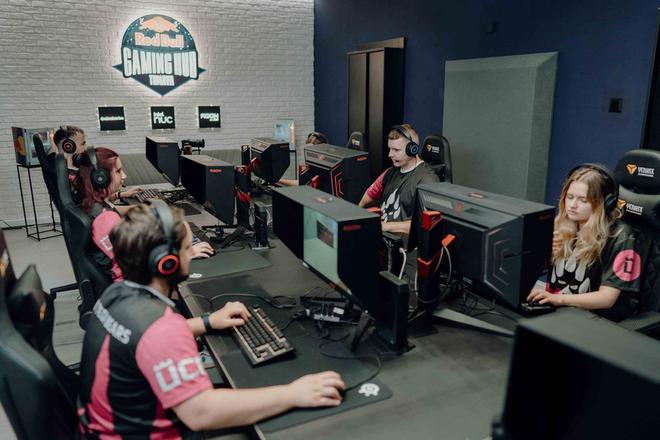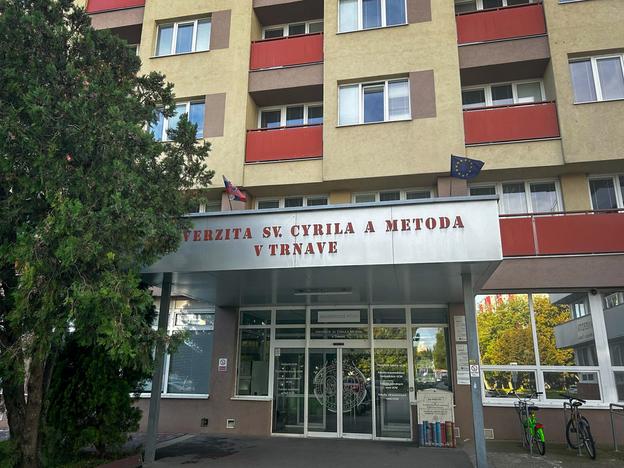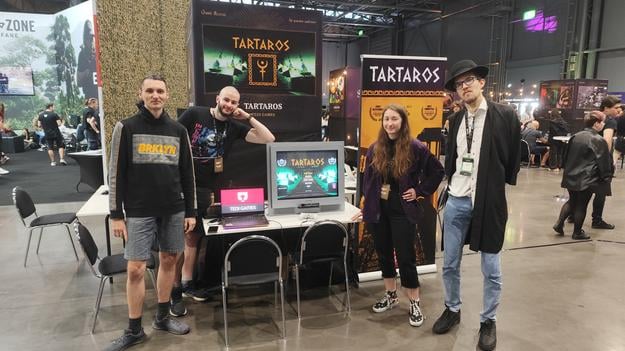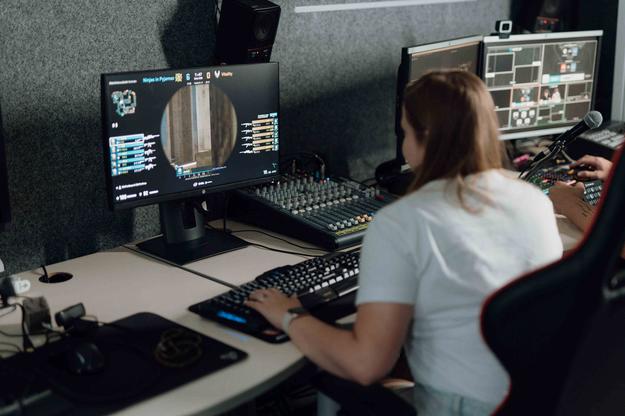Instead of tackling arduous homework like memorising Pythagoras’ theorem, the genealogy of the Habsburg dynasty, or the dates of battles in history – topics that many students struggle to remember – many schoolchildren just want to open their computers, or grab their favourite console, and dive into the virtual world.
But what if they could do that at school without getting a black mark or having their parents called to the principal's office? For every avid gamer, this is the ultimate dream. Believe it or not, in at least one place it's now a reality.
The University of Ss Cyril and Methodius in Trnava seems to have heard the voices of those connoisseurs of the virtual world, and has opened an innovative and revolutionary department at its Faculty of Mass Media Communication, namely the Department of Digital Games.
To be clear, this area of study doesn't mean students can just spend their days playing video games. Rather, the creation of this academic programme is intended to be a significant step forward for Slovakia in terms of digitalisation and the development of the local gaming market.
Maximilian Ďurov, a third-year student in the programme, has had a passion for video games since his childhood. “I am aware that games won't pay my bills unless I pursue a career in eSports, which is why I want to work on game development,” Ďurov explains when asked why he chose this programme of study.
Ďurov’s classmate, Miloš Neuvirth, who is also a third-year student, told The Slovak Spectator that, in addition to his studies, he is already working on the development of a Slovak video game.
"I'm not sure how much I can say about it, since the game is in the development phase, but it's about the partisans and their actions in the times before and during the Slovak National Uprising (SNP)," Neuvirth revealed. The SNP was an uprising against fascist rule in wartime Slovakia that took place in the autumn of 1944.
He also pointed out that he believes Slovak games lack quality marketing, which is why even potentially successful games sometimes remain unknown not just to the public, but even to gamers.
Martin Paučin, a lecturer at the university who teaches a master’s course, Practical eSports, and a module called Streaming and Commentary for Digital Games, says: "Every game can have potential if it is well-made and marketed to players." He echoed the belief that marketing is also crucial in the gaming industry.
Slovakia has strong potential in the gaming industry
Progress and development are dynamic processes, meaning education must also move with the times.
Although Slovakia is not as prominent on the gaming map as its neighbours Poland or the Czech Republic, it has produced high-quality titles that are attracting global attention.
In 2020 the digital game Vaporum: Lockdown, produced by Fatbot Games, a studio based in Bratislava, won the main award for best Slovak game at Game Days, an international video game development festival held in Slovakia.
Three years later, students in the Theory of Digital Games programme at the University of Ss Cyril and Methodius triumphed in an annual competition run by the prestigious GameJamPlus accelerator, the university's website reports. The team named RedSpark won with their game named Tartaros in two categories – Best Narrative and Game Accessibility. They were competing against over 1,000 other games from 30 different countries around the world.
Digital game studies are prestigious
The segment of digital game development and related services in Slovakia has been steadily growing for several years, according to a recent survey, The Slovak Gaming Industry in 2022, published by the Slovak Game Developers Association (SGDA). In 2021, game developers in Slovakia generated a turnover of €80 million, with the top 10 percent of companies contributing €69.4 million to the total turnover.
Figures like these mean that the creation of digital games can’t be dismissed – it is part of Slovakia's digital future, as game development is likely to stay with us for the foreseeable future, and is only likely to grow.
Ďurov, the Trnava games studies student, would like to choose Slovakia as the setting for his future game. His dream concept is a game similar to a taxi simulator, where players would complete various quests, much as taxi services operate in real life. He envisions this as a way for players, whether local or international fans of such games, to explore Slovakia.
“It would also be compatible with steering wheels [such controllers are already used in other driving-simulation games – Ed.] and their accessories, so such a simulator could help young drivers become familiar with Slovak roads, potentially reducing accidents on the road,” Ďurov believes.
Slovakia’s digital transformation
The Covid-19 pandemic prompted a renewed focus on Slovakia’s path towards digitalisation. In 2020 the Slovak Republic was 22nd among all (then) 28 EU member states in the Digital Economy and Society Index, behind the Czech Republic and Hungary. However, 27 percent of Slovaks had digital skills beyond the basic level, which was the highest rate in the Visegrad Group region.
A step forward into the digital future also involves mass culture and mass media, with computer games being one of the key elements. Young people who choose to pursue their goals and dreams – or just engage in a pleasurable hobby – can now aim to use their future profession to contribute something valuable to the national economy.


 Students from the department of Digital Game Theory (source: UCM FMK)
Students from the department of Digital Game Theory (source: UCM FMK)
 University of Ss. Cyril and Methodius in Trnava. (source: Iryna Uias, Diana Ščepková )
University of Ss. Cyril and Methodius in Trnava. (source: Iryna Uias, Diana Ščepková )
 Martin Paučin, a lecturer at the university of Ss. Cyril and Methodius in Trnava, who teaches in the field of Theory of Digital Games. (source: UCM FMK)
Martin Paučin, a lecturer at the university of Ss. Cyril and Methodius in Trnava, who teaches in the field of Theory of Digital Games. (source: UCM FMK)
 Team RedSpark, who succeeded at the Game Jam Plus competition, where they won with their game Tartaros in two categories. (source: UCM FMK)
Team RedSpark, who succeeded at the Game Jam Plus competition, where they won with their game Tartaros in two categories. (source: UCM FMK)
 Playing games can be more than just a hobby. (source: UCM FMK)
Playing games can be more than just a hobby. (source: UCM FMK)